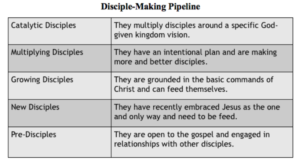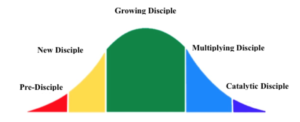
Are We Really “Churching” As Jesus Described It?
Is Being an Externally Focused Church enough? Are We Doing What Jesus Said Matters Most?
Almost a decade into our church journey of being externally focused, the city of Longmont called me (Brian). They had a problem with one of the residents. The grass in her yard was five feet tall. They had sent the homeowner several letters asking her to take care of her yard, but to no avail. The city was at the point where they were going to have to send out city workers to take care of the yard. They didn’t want to do this and didn’t want to charge the homeowner, because it was going to be very expensive. So, in a last-ditch effort, they called LifeBridge. It is not uncommon for calls like this to come into our church from the city, the local schools, or other agencies. For years we had been getting into the stream of our community to serve. The city employee asked if we would take care of the woman’s yard for her. I said I would look at the situation and get back to her.
As I was driving up, I spotted the house from blocks away. They weren’t exaggerating. The grass was almost as tall as I. I knocked on the door and a woman in her young thirties answered. Standing next to her was a little girl. I learned that this woman had recently survived stage-four cancer, and she was taking care of the nine-year-old girl, who was in foster care. This woman was tearful and embarrassed about her yard, but she said her health prevented her from trying to take care of it.
My heart broke for her, and I was happy that our church was going to help her. I gathered a dozen people and they brought their own equipment. A few hours later we had the yard looking almost as good as new. We came back the next week to put down some mulch. We prayed for the homeowner, and we felt great about what we had done. I was proud of our people, and I was glad the city knew they could call us and count on us to take care of it. It was fun to pat ourselves on the back. Over the next year, I called the woman a couple of times to see how she was doing. After the second call, while I was silently congratulating myself, the Holy Spirit said: “This is nothing to be proud of. This should never have even happened.”
I immediately knew the full meaning of this gentle rebuke by God. The woman’s grass should never have grown more than six inches tall. I started thinking how I would’ve done things differently if I’d received that phone call today. Each time I reviewed it, I made a little more progress. First, I wouldn’t just ask a dozen random people from our church. Instead, I would look to see who lived near her. We have several families within a couple blocks of her house. I would’ve called them and asked them to help me help their neighbor. Then I thought I would go even one better. I would ask them to help me, but I would also ask them to knock on their neighbors’ doors, no matter if they were Christian or not, and invite them to join them in helping this woman.
Truth is, if we, as a church, had done a better job of helping our people learn to love their neighbors, then I never would’ve even received a phone call from the city in the first place. At the very least, when her grass started to get a little too tall, somebody would’ve gone over and checked on her to see what was going on, and then they would’ve stepped in and started helping. Even better, what if the grass never grew more than an inch too tall because neighbors knew one another and knew the moment their neighbor was diagnosed with cancer? They would’ve stepped into action, taking care of her, praying for her, bringing her food, visiting her in the hospital, taking care of her yard, and helping to support her foster daughter.
For years our church was serving the community, but were we loving our neighbors? Were we doing the things Jesus said mattered most? Were we loving God and loving our neighbors as ourselves? Her neighbors didn’t know she was sick. The best they knew to do was to call the city and complain about her yard. They had failed at loving their neighbor as themselves. The more our leadership at LifeBridge thought, discussed, and dreamed about this, we realized this relational way of doing ministry proved that good neighbors are better than a good program. Having an external focus and serving our community was very good and now we needed to imbed the value of loving our literal neighbors into our DNA.




































